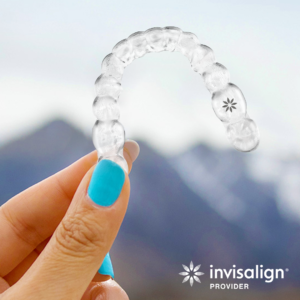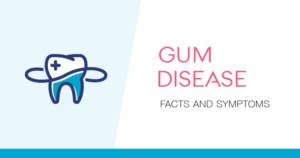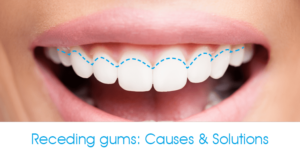Is Carbonated Water Bad for Your Teeth?

Carbonated water, also known as sparkling water or fizzy water, has become a refreshing and bubbly alternative to regular water.
It provides a fizzy sensation and can be enjoyed independently or as a mixer in various beverages. However, concerns about its potential effects on dental health have been raised.
In this article, we will answer the question, “Is Carbonated Water Bad for Your Teeth?” and explore the impact of fizzy water to separate fact from fiction.
What is carbonated water?
Carbonated water is infused with carbon dioxide gas under pressure, creating characteristic bubbles or fizz. It can be produced naturally through mineral springs or by adding carbon dioxide to plain water.
Carbonation gives the water a pleasant effervescence, making it a popular choice among those looking for a bubbly beverage without the added sugars or calories in traditional sodas.
The bubbly sensation
The effervescence of carbonated water provides a unique sensory experience that many find enjoyable. The release of carbon dioxide bubbles on the tongue can create a tingling or refreshing sensation.
However, it’s important to distinguish between the physical sensation and the potential effects on tooth health.
pH levels and tooth enamel
One concern regarding carbonated water is its acidity.
Carbonation does not directly harm teeth, but the carbon dioxide gas can combine with water to form carbonic acid, lowering the water’s pH level. Acidic beverages can erode tooth enamel over time, leading to tooth sensitivity and cavities.
However, not all carbonated waters are equally acidic.
Some brands may add flavorings or other ingredients that can increase acidity, while others may have a pH level closer to neutral.
It’s essential to read labels and choose carbonated waters with a pH level as close to neutral (pH 7) to minimize potential harm to tooth enamel.
Carbonated water vs. sugary drinks
Carbonated water is generally better for dental health than sugary drinks like sodas or fruit juices.
Sugary drinks contain high levels of sugar, which can feed harmful bacteria in the mouth, leading to tooth decay and cavities. By opting for carbonated water instead, you can enjoy a bubbly beverage without the added sugars detrimental to dental health.
Potential effects on tooth sensitivity
Some individuals may experience increased tooth sensitivity when consuming carbonated water regularly. The acidic nature of carbonated water can weaken the protective enamel layer, exposing the underlying dentin and leading to sensitivity.
If you already have sensitive teeth, it might be worth moderating your consumption of carbonated water or exploring alternative options.
Carbonation and dry mouth
Another consideration is the potential relationship between carbonated water and dry mouth.
Carbonation can sometimes exacerbate the symptoms of dry mouth, a condition characterized by insufficient saliva production. Saliva is vital in maintaining oral health by washing away food particles and neutralizing acids.
If you experience dry mouth symptoms, it’s advisable to consult your dentist for guidance.
Maintaining good oral hygiene
Whether you consume carbonated water or not, maintaining good oral hygiene is crucial for preserving your dental health.
- Brushing your teeth at least twice a day
- Flossing daily
- Visiting your dentist regularly for check-ups and cleanings
Moderation is key
As with many things in life, moderation is key.
While carbonated water can be enjoyed as part of a balanced and healthy lifestyle, excessive consumption may increase the risk of dental issues.
Consuming carbonated water in moderation is best, and opt for brands with a lower acidity level to minimize potential harm to tooth enamel.
Seeking professional advice
If you have specific concerns about the impact of carbonated water on your dental health, it’s always wise to consult with a dental professional.
They can assess your unique circumstances and provide personalized recommendations to help you maintain a healthy smile.
FAQs
Is carbonated water more damaging to teeth than regular water?
While carbonated water is slightly more acidic than regular water, it’s not significantly damaging to the teeth, especially when compared to sugary sodas.
How can I minimize the impact of carbonated water on my teeth?
Drinking carbonated water with meals and maintaining a regular oral hygiene routine can minimize any potential impact.
Are all carbonated drinks the same in terms of acidity?
No, not all carbonated drinks have the same acidity. Drinks like soda often contain other acids and sugars, making them more damaging to teeth.
Can I replace regular water with carbonated water completely?
While carbonated water is a fun alternative, it’s best not to completely replace regular water, as it remains the best option for hydration and oral health.
Do dentists advise against drinking carbonated water?
Dentists generally don’t advise against carbonated water but recommend consuming it in moderation alongside a solid oral hygiene routine.
A final thought
In conclusion, carbonated water can be a refreshing and enjoyable alternative to sugary drinks.
While carbonated water’s acidity can potentially affect tooth health, it is generally considered less harmful than sugary sodas and juices.
By choosing carbonated waters with lower acidity levels and maintaining good oral hygiene practices, you can continue to enjoy the fizzy sensation without compromising your dental health.
Or:
- Call us at 403-320-5101
- Email us at appointments@signaturedentistry.ca
Signature Dentistry is located in Lethbridge, AB, and we happily welcome folks from neighboring areas.










